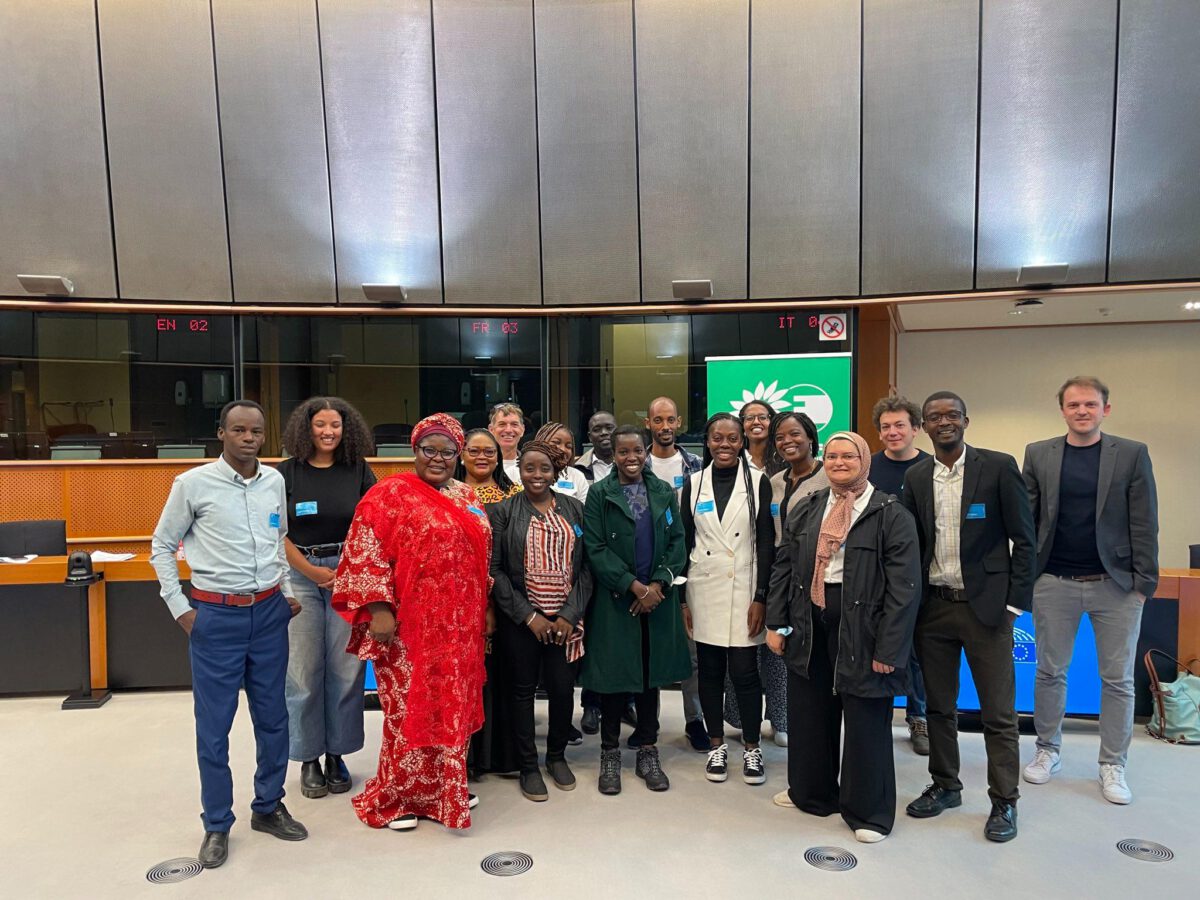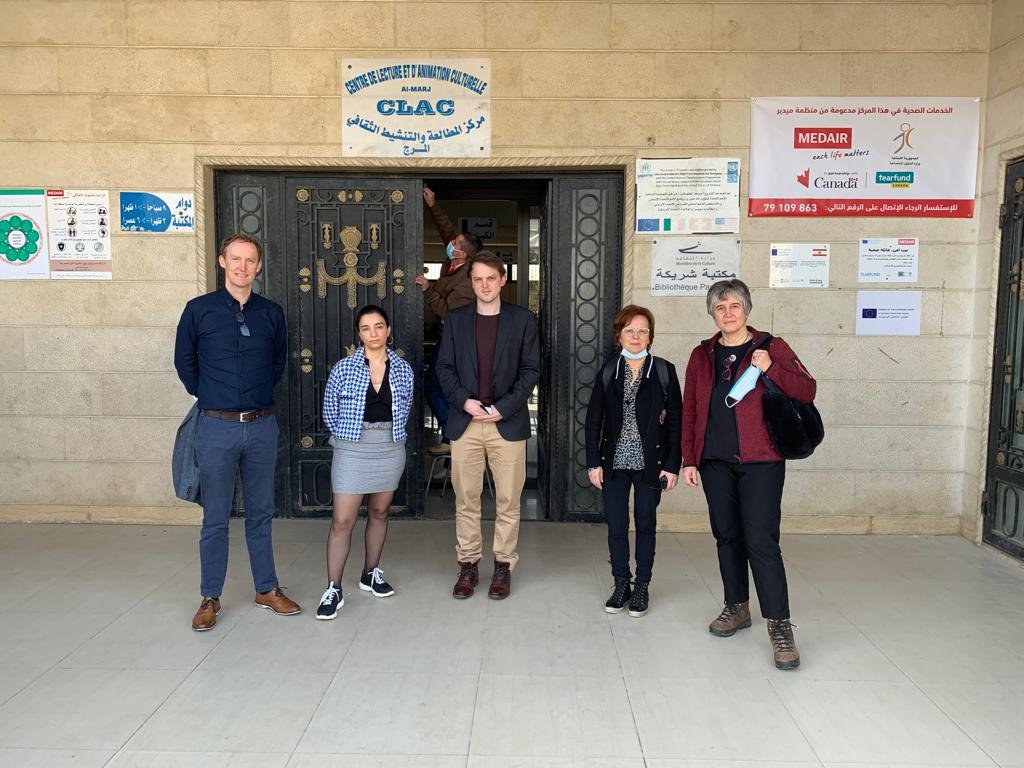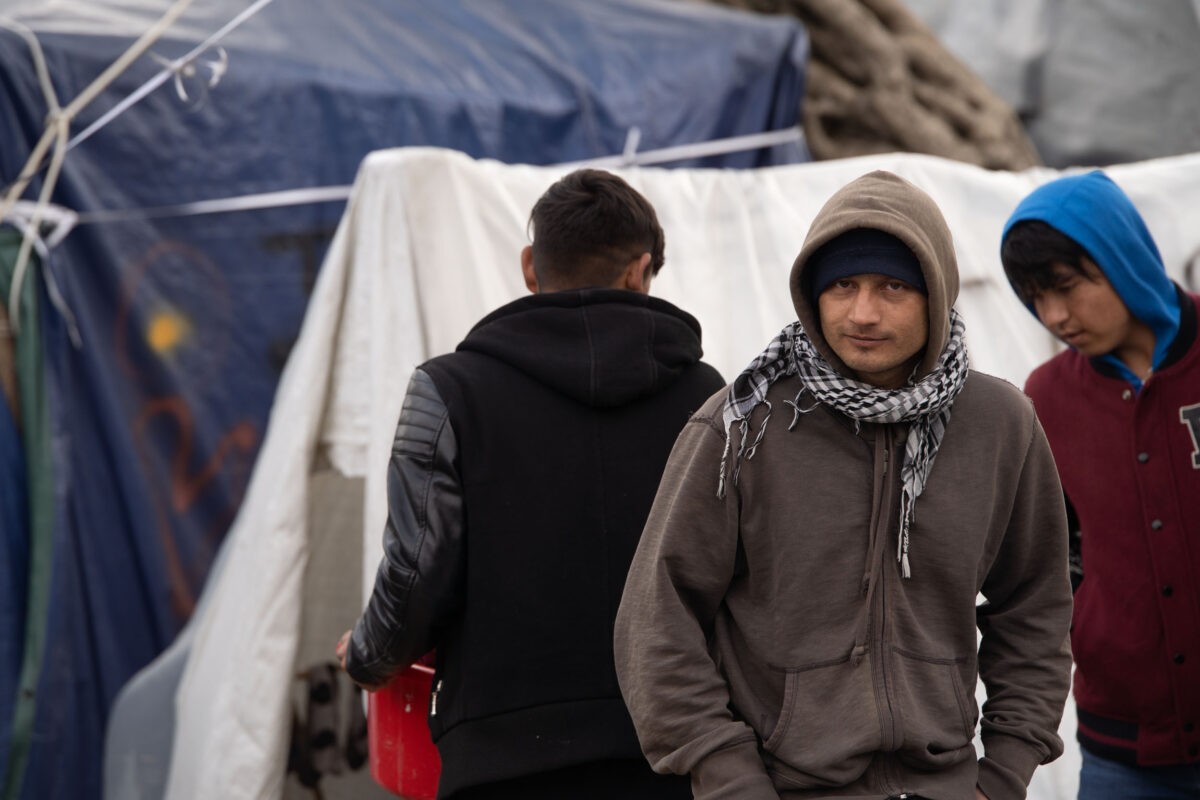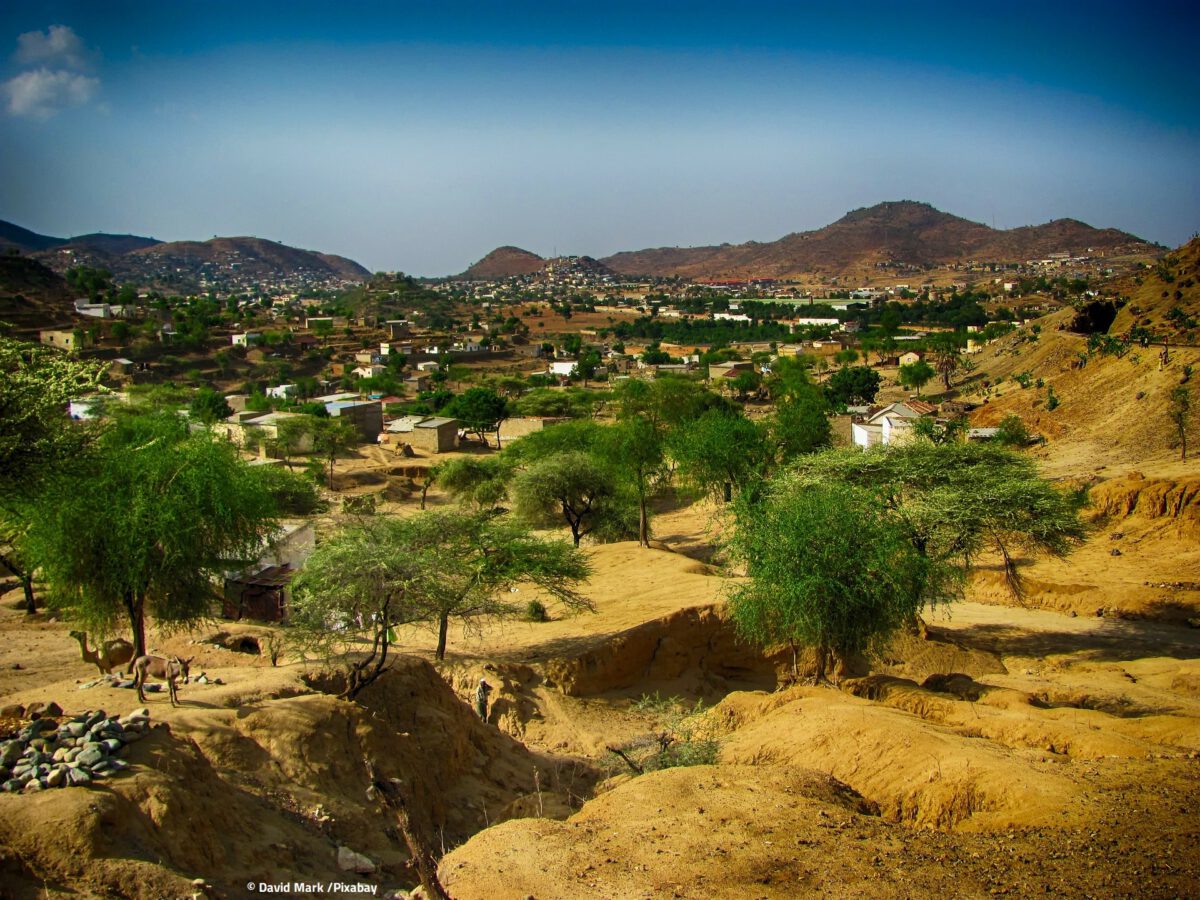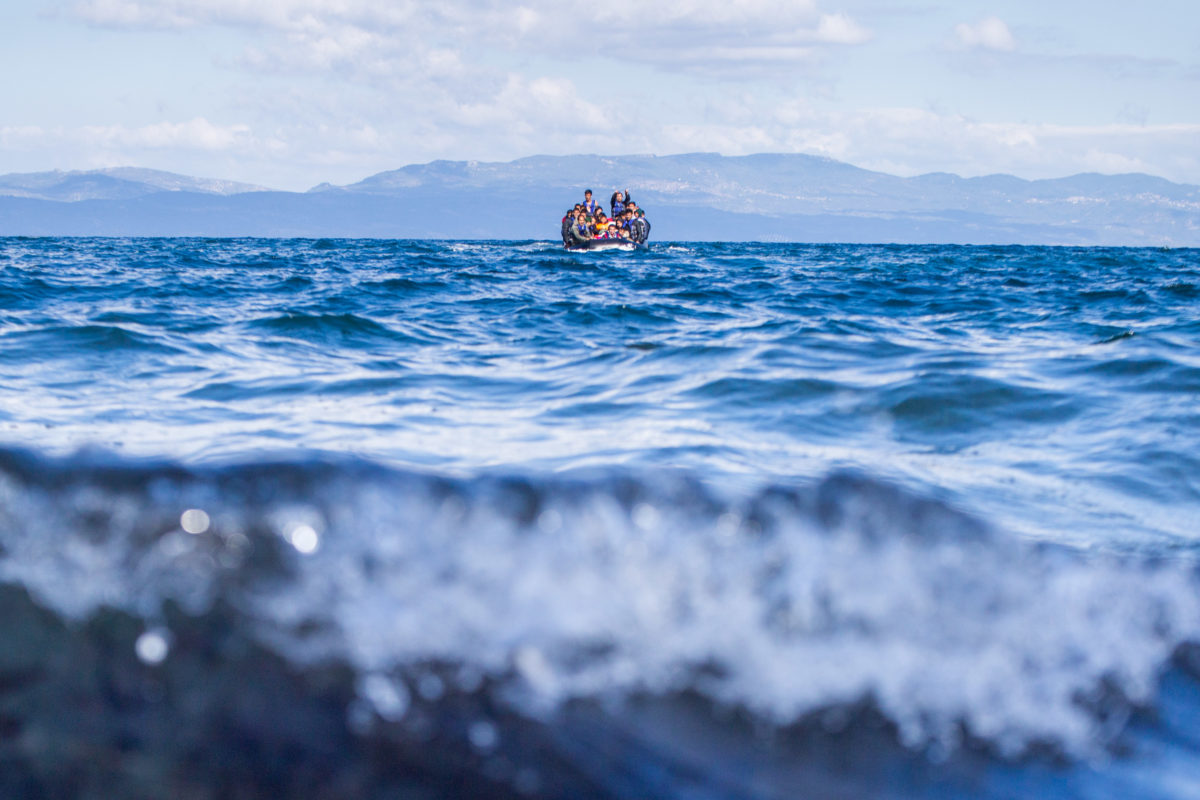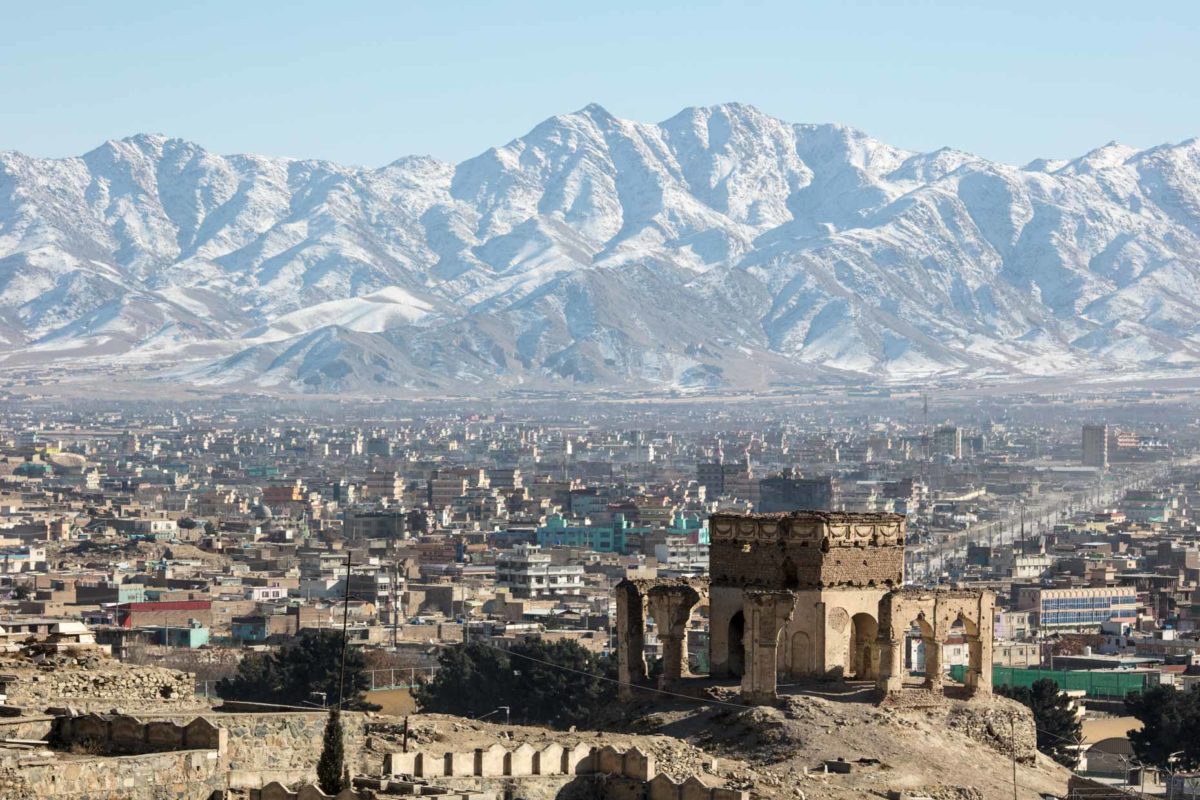„I work at the [name redacted] border patrol station and have been in border patrol for a long time. Some of us no longer have the will or the strength to watch what is being done to these people. We send them back to Bosnia and Herzegovina every day, without papers, without processing, no matter who it is, women, children, it doesn't matter. There is no asylum, it does not exist – except in exceptional situations, when journalists are there.“
A Croatian border guard
Our Green Group in the European Parliament has produced a study on the education and training programmes of border guards. The study examined the programmes in Italy, Greece, Hungary and Croatia, as well as those of Frontex and CEPOL (European Union Agency for Law Enforcement Training). The author of the study is the social psychologist Helena Bakic. The aim of the study was to find out whether the trainings provide sufficient knowledge about human rights and their relevance for the work at the borders and how the trainings can be improved.
Unfortunately, massive human rights violations regularly occur at the EU's external borders: there is no end to the reports of pushbacks and repatriations of people to places where they are threatened with torture, violence and death. This is contrary to international law. But do all border officials even know which orders they are allowed to carry out and when human rights are being violated?
In order for human rights to be respected at the borders, border police officers must be familiar with the law and their particular responsibilities. They are in daily contact with people in need of protection and are often the first contact of protection seekers with the EU at all. Knowledge of their own work and its legal basis is a prerequisite for the performance of their duties. Officers must know whether orders or their actions are unlawful. In order to protect people from violence, clear tasks and a sound knowledge of human rights are needed. This is especially true in the field of asylum and migration, which is directly related to human rights.
Are we teaching them right? Results of the study
Short training periods for border guards of six months or less make it difficult to provide adequate training. Some countries also recruit volunteers without special qualifications. Others use riot police at the border. Nor is any knowledge of human rights required of trainees.
The subject is often taught in a dry and theoretical way. But pedagogy is important for a good education. Content must be taught in such a way that it can be implemented and applied. Six months of weapons training with minimal training on the legal framework within which this work operates is not enough.
Human rights are only marginally addressed in the educational programmes of border guards: The proportion varies between 0.4 and 2.5 % of the total training. In some Member States, human rights are not part of the training at all. Although there have been over 50,000 pushbacks and numerous reports of inhumane treatment of protection seekers, human rights violations such as mass deportations at the external borders have hardly been a topic in the trainings so far. Racism and diversity as well as communication at the borders are hardly or not at all addressed.
NGOs are involved only sporadically or not at all. Yet they could also contribute to an effective and human rights-oriented migration policy at the borders. They have important knowledge and could contribute new approaches.
Despite this bitter record, many training programmes have improved in recent years. The Common Core Curriculum (CCC) for border and coast guard training in the EU was developed by Frontex in 2003 and last revised in 2017. It sets minimum standards for the training of border guards. In addition, there are good guidelines and manuals for their training, such as the UN Manual of 1997 and the UNHCR's Protection Training Manual for European Border Guards. The latter was developed in particular with a view to protecting the rights of persons seeking protection in the context of mixed migratory movements. In addition, a comprehensive fundamental rights-based police training has been drafted.
Unfortunately, these programmes are hardly used and only a small percentage of border guards participate in them. The annual CEPOL course for law enforcement officers on police ethics and diversity management, for example, aims to improve respect for fundamental rights in law enforcement work. Two [!] border guards have taken part in this course in the last four years.
What next?
Existing programmes need to be evaluated and revised. EU Member States, Frontex and CEPOL should give human rights a greater place in their training programmes. Emphasis should be placed on anti-discrimination, proportionality of measures and protection of fundamental rights. Training should be provided by experts.
Teaching methods should also be revised and the expertise and perspectives of NGOs should be included in the training. Improving human rights education in training protects officers from committing crimes in legal grey areas and becoming targets of prosecution themselves.
The importance of this is demonstrated by the study's numerous reports of human rights violations by border officials. The suspicion is that these are taking place systematically. The fact that Frontex does not hire human rights experts, although the agency is obliged to do so, illustrates the importance attributed to this. Frontex is the largest agency in the EU and is constantly being expanded. In a Union that sees itself as a democratic community and that claims to defend human rights, it must be ensured that this also happens in practice.
Outlook
Close analysis of the various programmes of the Member States and agencies offers specific opportunities for improvement, adapted to each situation and based on the CCC. As border policy is increasingly coordinated at European level, we need to examine it more closely in Parliament. The debate on border policy and respect for human rights must be stepped up in order to prevent and stop further pushback scandals and further illegal behaviour at the borders.
Excursion to Germany: Racism remains a structural problem
It is not only among border police officers that there is a lack of awareness about discrimination and non-discriminatory practice. Many police students report a dominant right-wing and authoritarian culture within the training structures. There are numerous "individual cases" of fascist chat groups within the German police, countless cases of racial profiling, right-wing terrorist networks in German security agencies, unresolved Deaths in German cells and more. The Minister of the Interior refuses to conduct a study on racism in the police. Because he is afraid of the result and because he knows that racism is a structural problem is.
Rafael Behr, professor of police science at the Academy of Police in Hamburg, argues for more political education in the police and a more attentive environment. Also police researcher Hans-Gert Jaschke Calls for an open culture with more training opportunities within the police.
Poor training cannot be compensated for by extended monitoring. Monitoring is important in order to learn about violations of fundamental rights. However, the first step is to ensure that there are no violations of fundamental rights. Therefore, one should start with education. Acting against prejudice helps to deal with it actively, especially within the education and training programmes.
You can read the whole study here on German and English read about it. The summary and the most important chapters of the study are also available on French available.
Further links can be found here:


